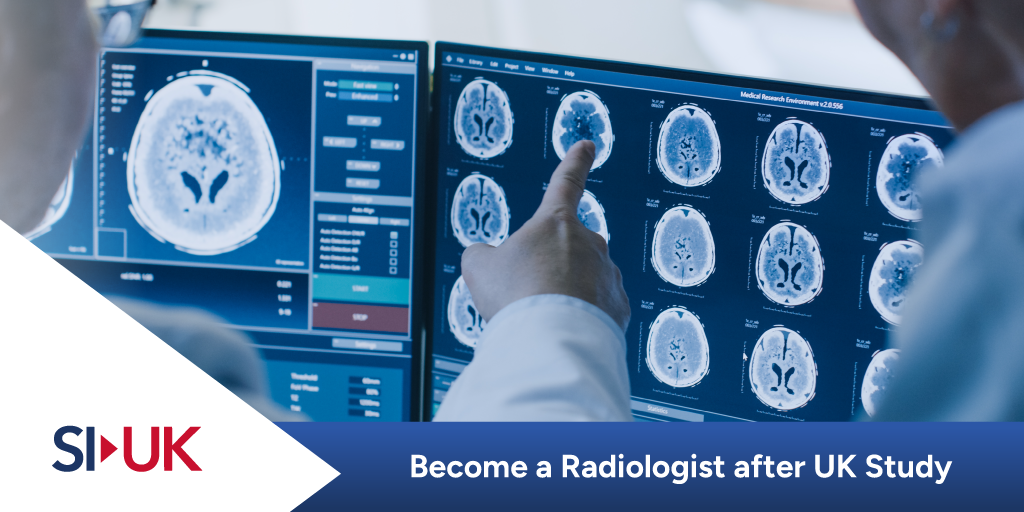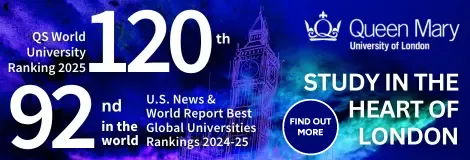Radiology is a popular field of study worldwide and an essential aspect of modern healthcare. It offers professionals the opportunity to play a crucial role in diagnosing and treating various medical conditions through advanced imaging technologies.
For Indian medical graduates (IMGs) who aspire to become a radiologist in the UK, going through the complexities of the UK healthcare system may seem challenging. Still, with the right information and guidance, you can successfully pursue a career in radiology.
Radiology vs Radiography: What's the Difference?
Radiology and radiography are related fields within the broader spectrum of medical imaging. Still, they have distinct roles and differences: Radiography is a diagnostic imaging technique that uses X-rays to produce images of the internal structures of the body, such as bones and organs, while radiographers, also known as X-ray technologists or radiologic technologists, are healthcare professionals who operate X-ray machines and produce radiographic images.
Studying radiology in the UK
Learn more about becoming a radiologist with educational qualifications, training, and registration in the UK below. If you have any questions or wish to apply, arrange a free consultation with SI-UK today.

How to Become a Radiologist through Studying in the UK
Qualifications and Educational Requirements
To become a radiologist in the UK, aspiring individuals usually begin by obtaining a bachelor's degree in medicine or medical sciences. Following undergraduate studies, they enrol in a competitive five to six-year medical school programme, combining classroom learning, clinical rotations, and practical experience. This educational foundation is essential for a successful career in radiology, providing the necessary knowledge and skills.
Students should choose a degree course aligned with their career goals, emphasising academic excellence and a genuine passion for medicine.
- Course Duration
A radiology undergraduate programme in the UK usually lasts three years, while medical school programmes span five to six years. Students can either pursue a BSc/MSc degree specialised in radiology or study a medical degree with radiology elements for all-around acquaintance with medicine.
- Fees and Scholarships
The average tuition fees for a radiology course for international students in the UK range between £18,450 and £45,450, depending on the programme structure and universities' offerings. UK universities and government bodies offer a range of scholarships and funding assistance to help students manage their finances.
Key Subjects or Courses in Radiology
The curriculum during medical school and subsequent radiology speciality training covers a range of key subjects and courses. These include but are not limited to:
- Anatomy and Physiology
- Medical Imaging Techniques
- Radiation Safety
- Radiological Anatomy
- Diagnostic Radiology
- Interventional Radiology
- Nuclear Medicine
Process of Admission and Application
Admission to UK universities for radiology programmes is competitive and typically requires a combination of academic excellence, relevant work experience, and a genuine passion for medicine. The application process involves submitting academic transcripts, letters of recommendation, a personal statement, and, in some cases, participating in interviews. Prospective radiologists should carefully review the admission requirements of each university and programme.
Career Prospects and Salary
Upon completing the required training and certification, radiologists in the UK enjoy promising career prospects. Radiology offers a diverse range of specialities, including diagnostic radiology, interventional radiology, and nuclear medicine. Salaries for radiologists vary based on experience, location, and specialisation, with average earnings ranging from £70,000 to £120,000 per year.
Top UK Universities for Radiology
Choosing the right university is a critical step in becoming a radiologist. Several UK universities are renowned for their excellence in medical education and radiology programmes. The ten top-ranking institutions include:
- City, University of London
- University of Exeter
- University of Cumbria
- University of Portsmouth
- De Montfort University
- University of Plymouth
- Cardiff University
- Ulster University
- Robert Gordon University
- University of Hertfordshire
Licensing or Certification
After completing speciality training, radiologists must pass the Membership of the Royal College of Radiologists (MRCR) examination. Successful candidates are eligible for professional registration with the General Medical Council (GMC). This process ensures that radiologists meet the necessary standards of competence and conduct, allowing them to practice independently in the UK.
Membership Exams
The Membership of the Royal College of Radiologists (MRCR) examination evaluates candidates' knowledge, skills, and competency in radiology. It is divided into three parts: Part A, which assesses basic knowledge; Part B, which evaluates clinical skills; and Part C, which assesses the ability to apply knowledge and skills in clinical scenarios.
Preparing for the MRCR examination requires dedication and a comprehensive understanding of the core principles of radiology. Many candidates opt for preparatory courses, study materials, and practice exams to enhance their chances of success. Successful completion of the MRCR examination marks a significant achievement and paves the way for professional advancement.
Professional Registration
Upon speciality training, candidates can apply for professional registration with the UK General Medical Council (GMC). Professional registration is mandatory for all medical practitioners and ensures that individuals meet the necessary standards of competence and conduct. The GMC plays a crucial role in regulating the medical profession, safeguarding patient care, and upholding the highest standards of professionalism and ethics.
The registration process involves submitting relevant documentation, including proof of qualifications, completion of required training, and evidence of continued professional development. Once registered, individuals are officially recognised as licensed medical practitioners in the UK, allowing them to practice independently as radiologists.
Study Radiology in the UK
If you want to study a radiology course at a UK university, contact SI-UK for a free consultation today.
FAQ
Is radiology in demand in the UK?
Radiology is one of the most in-demand courses in the UK due to the growing reliance on medical imaging for diagnosis and treatment, which contributes to the demand for qualified radiologists. The UK National Health Service (NHS) and private healthcare institutions actively seek skilled professionals in radiology to meet patients' diagnostic needs.
How hard is it to get into a radiology university in the UK?
Getting into a UK university offering radiology programmes can be competitive due to the specialised nature of the field. The process involves completing medical school, undertaking foundation training, and then specialising in radiology through a rigorous training programme. While the competition is intense, dedicated individuals with strong academic backgrounds, relevant experience, and a passion for the field can successfully pursue a career in radiology.
Are there specific entrance exams or tests Indian students need to take to pursue radiology in the UK?
Indian students must pass the Professional and Linguistic Assessments Board (PLAB) test or the Objective Structured Clinical Examination (OSCE) to demonstrate their English proficiency and medical knowledge. Additionally, candidates must pass the Membership of the Royal College of Radiologists (MRCR) examination for radiology specialisation.
Are there internships or practical training opportunities for Indian students pursuing radiology in the UK?
As part of the radiology training programme, students undergo practical training and gain hands-on experience in various imaging modalities. These practical components are integral to the curriculum, allowing students to apply theoretical knowledge in real-world clinical settings.
Can Indian students work part-time while studying radiology in the UK?
International students, including those from India, can work part-time while studying in the UK. However, there are certain restrictions and regulations set by the UK government. Individuals with a student visa can work up to 20 hours per week during term time and full-time during vacations.


 I sincerely thank SI-UK for getting me accepted to UCL. The MSc in Urban Development and Planning is extremely competitive, but the right guidance provided by SI-UK made my dream of studying at University College London a reality. The services were exceptional from beginning to end.
I sincerely thank SI-UK for getting me accepted to UCL. The MSc in Urban Development and Planning is extremely competitive, but the right guidance provided by SI-UK made my dream of studying at University College London a reality. The services were exceptional from beginning to end. 

